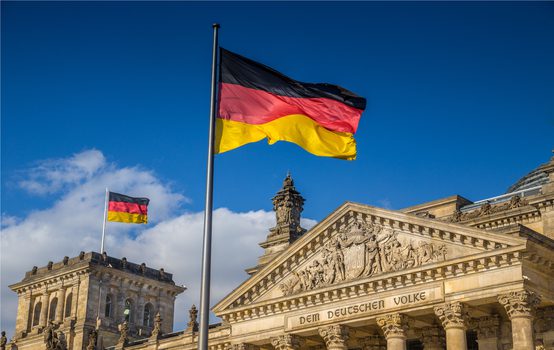The AfD Isn’t ‘Germany’s Alt-Right’

Bill Wirtz deserves our thanks for addressing the rise of a right-of-center political party in Germany, indeed the only German national party that defies Chancellor Angela Merkel’s boast that “that there is no right-of-center party in Germany.” Given the fact that the German Federal Republic may be able to claim the most politically correct electorate in Europe, the Alternative für Deutschland seems like a rather modest exception to Merkel’s generalization: right now it’s polling less than 10 percent of the likely German vote and in the recent regional election in the Saarland picked up no more than 7 percent. This, mind you, is in a country in which Merkel’s CDU-SDP coalition is responsible for admitting during the last year and a half about two million “Syrian migrants” (many of whom are neither Syrians nor refugees). In Germany, moreover, the rate of violent crime among the Muslim newcomers is many times higher than among the indigenous European population. The German response to this cataclysm has been not, as one might expect, to head decisively toward the right. Rather the electorate seems to be shifting toward the multicultural left and toward specifically those political parties that are emphatically antinational and favor even further immigration from the Muslim Third World.
Any attempt to see Germany as being on the verge of lurching toward a neo-fascist alternative to its current PC regime is utterly delusional. The Germans were so thoroughly “reeducated” by their victors after World War II that subsequent generations evolved into PC automata. The leaders of Germany’s very powerful leftist parties (that is, those to the left of the Christian Democrats), like Jurgen Trittin of the Greens, obtain millions of Germans vote. They also express utter loathing for their nation, as Trittin did continuously as a member of the German Bundestag, and promise to make it disappear into some global political entity. Any demonstration against further Muslim immigration into Germany brings out throngs of leftist demonstrators, who openly engage in violence against immigration critics. The national gathering of the AfD that will take place in Cologne right after Easter has already elicited demonstrations and predictable acts of violence from the left. The police in such situations are usually directed not to interfere in the demonstrations; and the German police inexcusably dithered when “migrants” sexually assaulted a few dozen German girls near the Cologne Central Railroad Station on New Year’s evening 2015–16.
Wirtz’s comparison of the AfD to Richard Spencer’s version of the alt-right left me scratching my head. Unlike certain strains of the alt-right, the AfD is not white nationalist, and its “nativism” seems to be confined to its preference (as explained in its “statement of principle” in 2016) that if Germany wishes to replace its shrinking population, “we need families with more children and not more mass immigration.” Having before me at this moment the AfD “statement of principle,” I find nothing there that reflects Mr. Spencer’s moral positions. The document affirms the sanctity of life and opposes abortion and gay marriage (these are not stands taken by most representatives of the present alt-right). The AfD also seeks to “restore the traditional family of father, mother and children as the nucleus of society.” Just about everything else the AfD advocates would fit into a Republican national platform, with its stress on fiscal restraint and cutting off funding to inveterately leftist public media. The AfD also calls for returning sovereignty that had been seized by the EU to its own country and reconsidering the usefulness of the euro zone for German economic stability. The “statement of principle” also makes clear that Germany’s borders are not the same as those of the EU. It is the German border police, not EU officials, who should decide who enters the country. Mr. Wirtz may not agree with this Trump-like reassertion of national sovereignty, but it’s exceedingly hard to see how it equates with white nationalism or neo-Nazism.
Wirtz also assigns an unfairly sinister interpretation to an often decontextualized remark made by the former Thuringian chairman of the AfD Björn Hocke at a party gathering in Magdeburg on October 16, 2015. Hocke was in no way alluding to Hitler’s “One Thousand Year Reich” when he spoke about “Germany having a future of one thousand years.” The speaker was talking about how his region was convulsed by migrant violence; and he expressed the hope that Germany, which “can look back at a one thousand year past,” would also have a future to look forward to.
Pace Wirtz, Hocke was not imitating the Nazis when he objected to the placing of a national Holocaust monument in the center of Germany’s capital. In my view, this Thuringian politician was unfairly expelled from his party when he described the monument as a “Schandmal,” a term that can be translated as either shame monument or stigma. The eminent German jurist, longtime pillar of Merkel’s party, and more recently vice-chairman of the AfD, Alexander Gauland was entirely correct when he insisted that Hocke’s stated opinion is certainly no grounds for expelling someone from a German party that claims to welcome an honest exchange of views.
Like other German patriots, Gauland reluctantly left Merkel’s party after it tried to outdo the left in renouncing Germany’s right to a national identity. Like other European countries, according to Gauland, Germany’s right to be a nation “should not be negotiable.”
Paul Gottfried is the author of Leo Strauss and the American Conservative Movement.
Comments